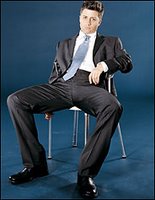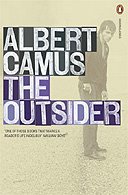 So what do you think of this idea - a bookshop especially for women?
So what do you think of this idea - a bookshop especially for women?Elizabeth Tai writes that MPH Bookstores has introduced Malaysia’s first “women concept” store which is at The Curve :
To begin with, the outlet’s books will be chosen for their appeal to women. There will be everything from women-centric business and management books and autobiographies on prominent female leaders to chick-lit and cookbooks. EspresSOUP is a little corner where you can relax with a cup of coffee and a good book. ... There will also be other products with female appeal, such as wedding stationery, to name just one. Brides-to-be will be glad to know that stationery specialist MOOF will be bringing in its exclusive designs, which will only be available at The Curve outlet.I think it is a clever marketing strategy, especially as The Curve already has a big branch of Borders and the branch of MPH does need to differentiate itself.
Bookshops also do need to reinvent themselves as destinations which customers associate with a pleasurable experience, if they are to survive especially as we move towards the age of ebooks.
This sounds like a place where women might go to treat themselves and get away from the pressures of the day and that's good and I like the idea of the books club, talks and workshops: it's bookstore "squidginess", for sure.
But, I do have some reservations. First, I personally don't like segregation of the sexes. Men need their spaces to relax and hang out too.
And secondly I don't like the cliched assumptions that women should like certain things whether in terms of decor (usually frilly, flowery pink things) or in the choice of books. The concept of women's bookshops is nothing new, but around the globe most have been independents which promoted feminist and/or lesbian thought.
Furthermore, it seems to me that there is an increasing de-emphasis on selling books and a move towards the store becoming a gift shop that also sells books.
I will go check it out the next time I go shopping at The Curve ... and I hope the EspresSOUP corner serves decent coffee!
Anyway, what's your reaction to this?















